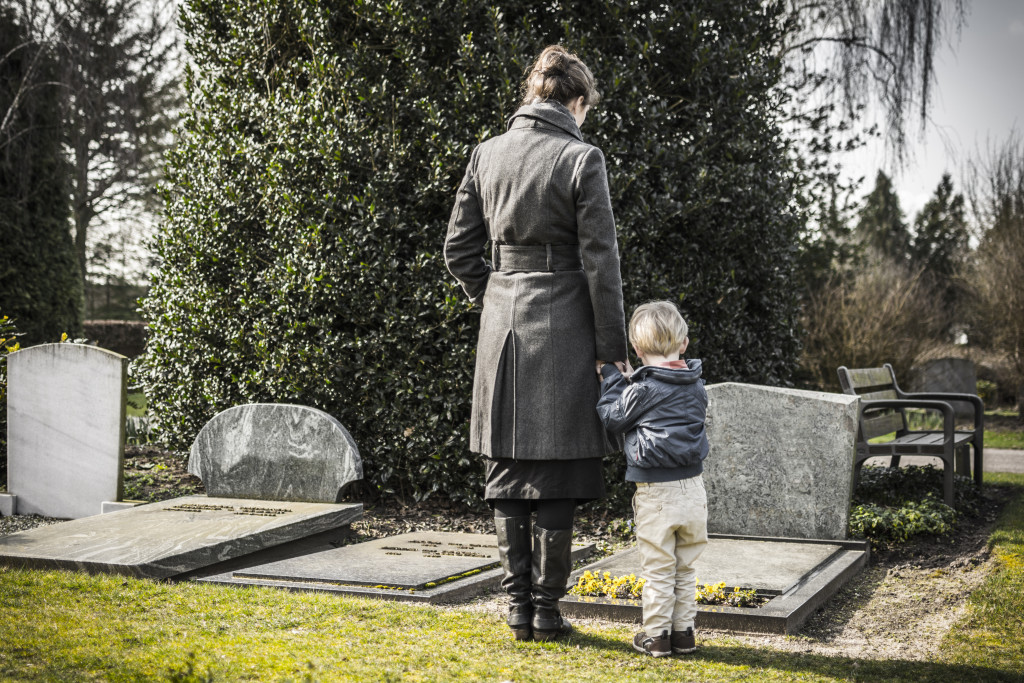Dealing with the death of a loved one is one of the most difficult challenges anyone can go through. Unfortunately, there is no surefire way to make the mourning process easier. However, there are some things you can do to help yourself cope in a healthy and productive way. This blog will outline six ways to deal with the loss of a loved one.
1. Acknowledge Your Feelings
It’s normal to feel a wide range of emotions after losing someone you love. You might feel angry, shocked, empty, or numb. Don’t try to bottle up your feelings or tell yourself that you shouldn’t feel the way you do. Acknowledgment and acceptance are crucial steps in the grieving process. Here are some healthy ways to express your emotions:
- Talk to a trusted friend or family member about how you’re feeling
- Write down your thoughts and feelings in a journal
- Attend a support group for grieving individuals
2. Get a Closure
If possible, try to get closure on the situation. This can help you come to terms with what happened and start to move on. If your loved one died suddenly, you might not have the opportunity to say goodbye. In this case, you can write a letter to your loved one expressing your thoughts and feelings.
If you lost your loved one in wrongful death, you might be struggling to get closure. In this case, working with an experienced wrongful death attorney can help. They can help you get answers and justice for your loved one’s death. No matter how your loved one died, getting closure can be essential in the grieving process.
3. Take Care of Yourself
It’s important to take care of yourself both physically and emotionally after losing a loved one. This can be difficult, but it’s crucial for healthy grieving. Here are some self-care tips:
- Eat healthy foods and get plenty of rest
- Exercise regularly
- Limit alcohol and drug use
- Spend time with friends and family
Not only will taking care of yourself help you physically, but it will also give you a much-needed emotional outlet.

4. Talk About Your Loved One
Talking about the person you lost can be a great way to keep their memory alive. Share stories and photos with friends and family members. If you’re having trouble talking about your loved one, consider writing down your thoughts and memories in a journal.
You don’t have to talk about your loved one all the time, but it can be helpful to do so when you’re feeling ready. If you’re not sure when you’re ready to talk, that’s OK. Just take your time and let yourself grieve in whatever feels right.
5. Lean On Your Support System
Turn to your friends and family members for comfort and assistance after losing a loved one. They’ll be more than happy to lend a listening ear or help out with practical tasks, like running errands or taking care of household chores.
If you don’t have close relatives or friends nearby, look into support groups in your area. Talking with others who are going through a similar experience can be incredibly helpful. You can also find online support groups if you’re not ready to talk in person.
6. Find Healthy Outlets for Your Grief
Cry when you need to cry, laugh when something strikes you as funny, and let yourself experience all of your emotions without judgment. Finding creative outlets for your grief is also important, if possible. Some people like to write poetry or music, while others prefer painting or sculpting. There is no right or wrong way to express yourself—do whatever feels right for you at the time.
Grief is not something that can be fixed or cured—it’s something that must be experienced over time. The pain will lessen as time goes on, but it will never completely go away altogether. It’s also important to remember that everyone grieves differently, and there is no right or wrong way to do it. Try not to compare your own mourning process to someone else’s— focus on taking things one day at a time and being kind to yourself along the way.
Experiencing the death of a loved one is one of the most difficult challenges anyone can go through—but there are some things you can do to ease the pain and make the mourning process more bearable. With time, patience, and the support of loved ones, you will eventually be able to heal and move on. So take things one day at a time, and be gentle with yourself as you grieve.

